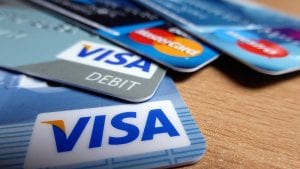Losing money or credit cards can ruin your trip

Protecting your money — cash, credit and debit cards, and ATM cards, as well as IDs is critical while traveling. I’ve got 14 tips to help prevent their loss or theft that start at home before you leave.
Alert your bank and credit card companies:
Before leaving on your trip, alert the bank(s) that issued your credit, debit and ATM cards, plus other credit card companies, about your travel plans. It can help you speed up the process to obtain replacement cards if they’re lost or stolen.
Buy travel insurance:
The majority of travel insurance policies will cover losses due to lost or stolen cards or cash, but it’s usually capped. Know the limit and act accordingly.
Research your destinations:
Some destinations are well-known for their street crime, including pickpocketing and other scams like “cardboard gypsies” and “swaddled babies.” Find out in advance what you might encounter to be prepared. Barcelona’s “La Rambla” is notorious for pickpocketing.
On-body storage:
Use on-body storage including neck and belt storage or bra stashes for women for cards, IDs, passport, and cash. Don’t use a fanny pack. They’re too easily stolen by slash and grab thieves. Don’t pull out your card or cash from on-body storage to pay your bill in front of cashiers and servers. It will disclose your stash location. Pull it out in private, in a bathroom or elsewhere, then pay. Carry small bills in a pocket for quick payments such as tips for service. Never show a “wad” of cash when you pay a bill.
Credit vs. Debit cards:
I recommend credit cards, not debit cards for travel. They have better consumer protections. With a debit card, your bank account can be cleaned out before you’re aware that the card is missing. If using a debit card, keep a close eye on your account while you travel. I do that for all my accounts. Credit cards, such as the American Express card, have an additional advantage for couples and families sharing credit card accounts. Each card has a different card number. If one is lost or stolen, the remaining cards don’t have to be canceled.
Trim your wallet:
Before leaving on your trip, go through your wallet. Remove all unessential contents. Create a list of everything in your wallet with account and ID numbers. Keep it separate from your wallet. Include the phone numbers for your bank and credit card companies customer service on your list, in case they’re lost or stolen. When traveling internationally, the usual toll-free number may not work; get the international contact numbers.
Limit the amount of cash you carry:
Use credit/debit cards to the extent possible. Only carry the cash you’ll need for that day. Leave any excess cash in your hotel room safe. If you have excess cash to stow, ask the hotel to keep it for you in their safe.
Obtain cash during your trip as needed:
In order to avoid having too much cash at any time during your journey, use ATMs periodically while traveling. Only obtain enough cash for a few days. Avoid secluded ATMs. Primarily use ATMs at banks or in your hotel. Bankrate importantly points out that thieves setup phony ATMs in tourist areas.
Carry your cash and credit/debit cards separately:
If possible, keep your cards and cash separate so a thief can’t steal both at the same time.
Carry just one credit/debit card at a time:
If you have more than one credit card and/or debit card, keep one in your hotel room safe, while out for the day, to prevent all your cards from being stolen at once. If the one is lost or stolen, you’ll still have another to pay bills while waiting for your stolen or lost card to be replaced. Keep your ATM card in the safe unless you’re going out to use it.
Use mobile payments:
Use a mobile payment system such as Apple Pay whenever possible. It permits you to keep your cards and cash hidden and doesn’t reveal card information to the vendor in case their system is hacked. Make sure the device is protected with a strong password.
Use your hotel room safe religiously:
Keep all valuables, cards, cash, IDs and passport, when not in use, in the room safe.
Use a waterproof hidden on-body wallet at the beach:
It’s unsafe to leave your cash or cards at the beach while you swim. Keep them on your body under your swim clothing in a waterproof on-body wallet, if you must have them with you. At a hotel pool, leave them in your room safe.
Be aware of your surroundings:
Whenever traveling, be aware of your surroundings at all times. Use your “street smarts.” Avoid dense crowds where you can’t protect your belongings.
These 14 tips will help keep your cash and cards safer when traveling, but they aren’t foolproof. Along with these practices use a commonsense approach whenever traveling.
After many years working in corporate America as a chemical engineer, executive and eventually CFO of a multinational manufacturer, Ned founded a tech consulting company and later restarted NSL Photography, his photography business. Before entering the corporate world, Ned worked as a Public Health Engineer for the Philadelphia Department of Public Health. As a well known corporate, travel and wildlife photographer, Ned travels the world writing about travel and photography, as well as running photography workshops, seminars and photowalks. Visit Ned’s Photography Blog and Galleries.



